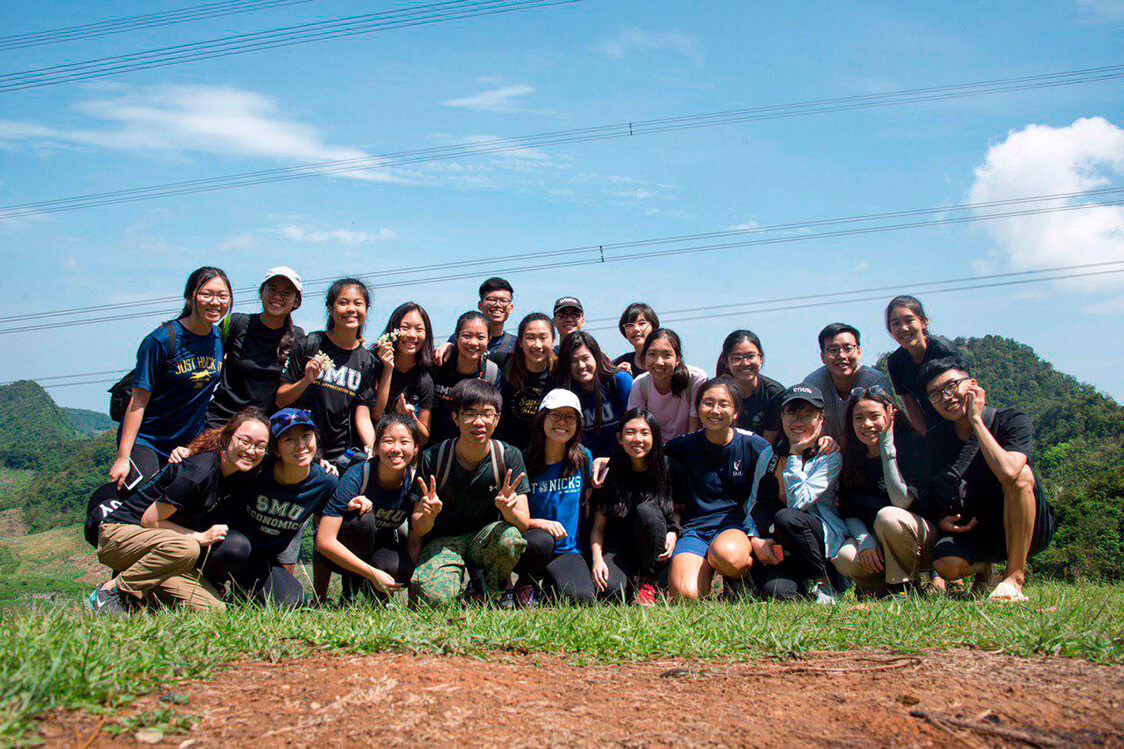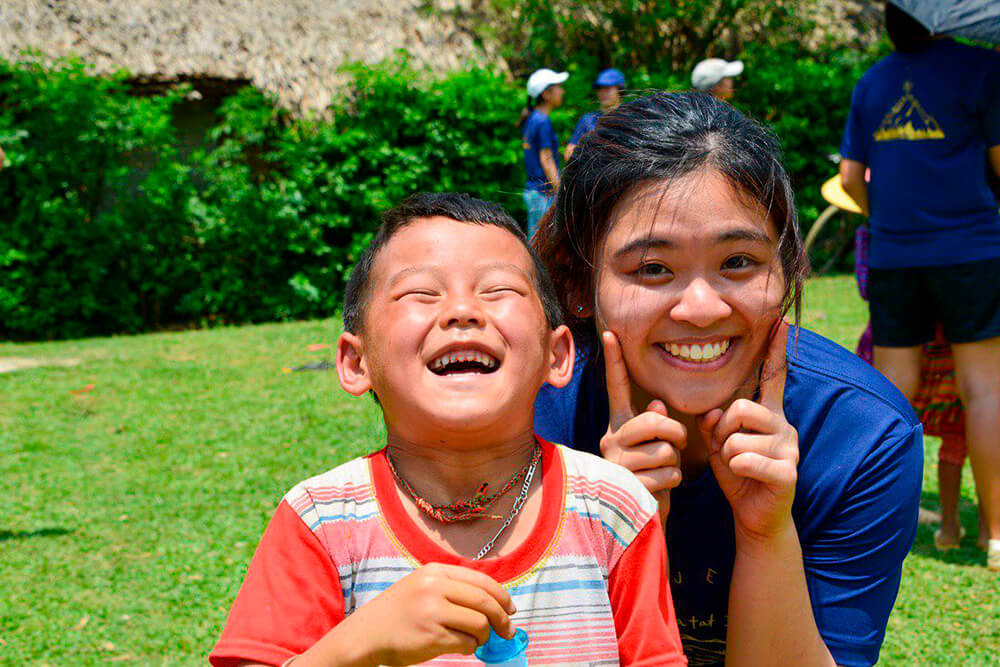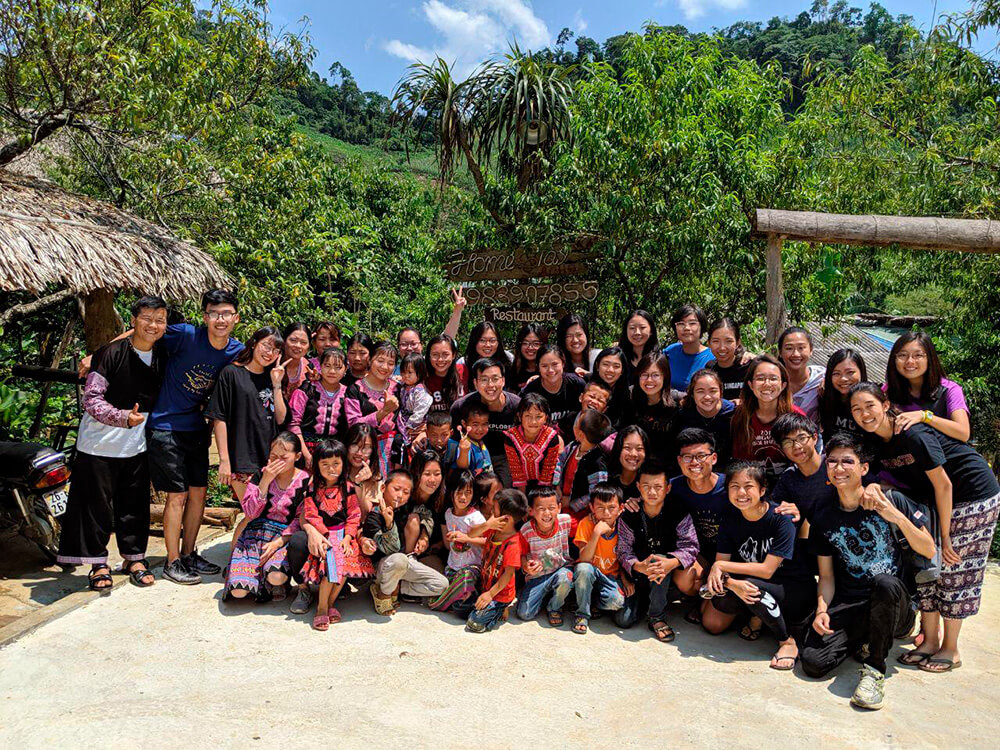
[Feature image: The Project Hua Tat 2 team on our first hike up the mountain]
In May 2019, I spent two weeks of my summer holidays in Hua Tat, a small village tucked away in the mountainous region of northern Vietnam. A five-hour drive away from Vietnam’s bustling, sweltering capital of Hanoi, Hua Tat boasts quaint, countryside charms that a city girl like me hardly experiences.
Hua Tat is a popular stopover destination for backpackers and nature-lovers, but I was not on vacation. Instead, I was there as leader of my scholarship’s overseas community service project (OCSP)—Project Hua Tat. Our project aims to empower the villagers of Hua Tat by helping them become self-sustainable in community-based tourism.
Project Hua Tat adopts a unique six-week service model to ensure greater continuity of our efforts. We were organised into three teams which took turns serving the village for two weeks during the summer holidays.
Our project addresses issues of water sanitation, English literacy and sustainable tourism development in the village. As such, my team of 22 Global Impact Scholars (GIS) were split into three subcommittees—Locals, School and Tourism, respectively.
The School subcommittee focussed on designing curricula to increase English literacy amongst villagers. The Locals subcommittee worked on improving water sanitation and overall cleanliness of the village. While the Tourism subcommittee collaborated with locals to implement cultural workshops such as beeswax painting and rice cake making for tourists, and developed collaterals like brochures and maps to help tourists.
For two weeks, we worked, taught and learnt from local villagers who were ever so welcoming and willing to share their culture with us.
I am very grateful to SMU for this opportunity to embark on my very first OCSP with Project Hua Tat. Truth be told, I was initially not a believer of OCSPs given their transient nature and the limitations of students heading to a foreign land with little or almost no knowledge of the place.
However, my views changed entirely after my initial trip to Hua Tat; I fell in love with the simple lifestyle and rich culture of the village. I realised the potential and impact of our work through the project, and what we could learn in return. It was, thus, during my first trip in 2018 when I decided to continue with Project Hua Tat the following year.
This year, I stepped up as the main leader of Project Hua Tat. Not only was this decision fueled by my desire to reconnect with new friends I had made in Hua Tat, I also hoped to spur the next batch of GIS students to discover what it truly means to engage in ‘service learning’, and be more appreciative of the simple things in life.

All smiles with my new Hua Tat friend during Games Day with village children
Stepping into the leader role during my second Hua Tat project expedition was a whole new ball game for me. Although it wasn’t easy, I am grateful for the learning opportunity. One of my biggest takeaways was learning how to adapt.
In the real world, things often do not go as planned. During the course of the project, there were many uncertainties which required me to think on my feet, adapt quickly to changes and pass on new instructions to my group members who were awaiting directions. This tied in with another significant takeaway: understanding the importance of communication and relationship-building.
Managing communications between the three committees, co-leaders and agency partners was especially crucial in keeping everyone in the loop about our team’s progress and maintaining morale amidst fatigue due to our busy schedule. This, however, provided good training for me to learn how to communicate effectively and hone my soft skills in people management, where I learnt how to better manage people with different working styles and perspectives, and guide them towards achieving our overarching goals. Apart from these, I also made some very good foreign friends.

Group photo on our last day in the village
To the juniors out there who may be interested in joining a community service project, I’d like to share a quote by Timothy K Stanton, who wrote a book on service learning: “I serve you in order that I may learn from you. You accept my service so that you can teach me”.
While the concept of OCSP seems to place us as givers of resources and knowledge, it is important to keep in mind that project involvement is very much based on reciprocity; we should never adopt a saviour mentality because you will ultimately learn so much from the beneficiaries you work and interact with. So my advice for anyone embarking on a project: keep an open and curious mind and just enjoy the ride!


